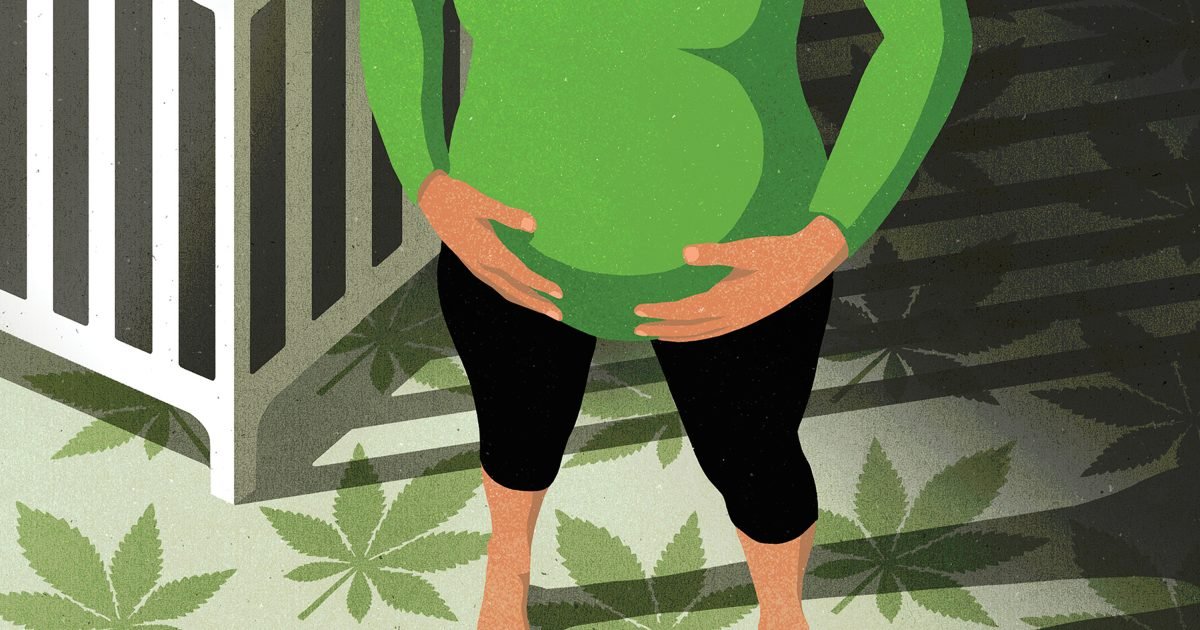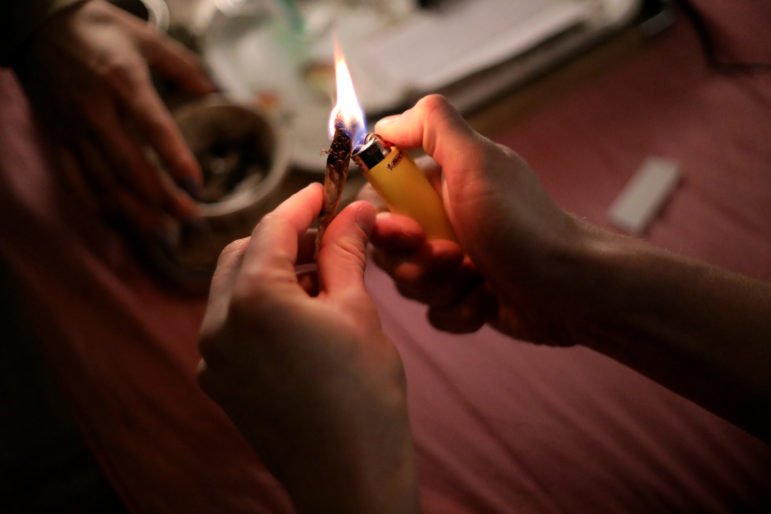Cara Crabb-Burnham, a Massachusetts resident, found that cannabis was the only effective treatment for her seizure disorder during her first pregnancy. She used a vaporizer to consume concentrated cannabis and stated, “I needed really high doses at that time. I used throughout my entire pregnancy.” Cannabis also played a role during her 14-hour home labor with her second child, where she relied on it for pain relief, although she humorously noted it was not a substitute for an epidural.
As more states legalize marijuana for medical and recreational use, an increasing number of women are turning to cannabis to alleviate pregnancy-related symptoms. A national survey indicated that cannabis use among pregnant women rose from 3.4% in 2002-2003 to 7% in 2016-2017. Research from California involving 220,000 pregnancies revealed that women experiencing severe nausea and vomiting were four times more likely to use cannabis compared to those without these symptoms.
Dr. Benjamin Caplan, a family doctor in Massachusetts, has observed this rise in cannabis use among his patients. His virtual clinic, which serves about 18,000 patients annually, sees 200 to 300 pregnant women or those trying to conceive. Many of these patients have either lost faith in conventional medicine or find that traditional treatments for morning sickness do not provide relief. Caplan recommends both THC, the psychoactive compound in cannabis, and CBD, which does not induce a high. He emphasizes the importance of personalized treatment plans for expectant mothers.
However, Caplan’s approach conflicts with guidance from the American College of Obstetricians and Gynecologists (ACOG), which advises against cannabis use during pregnancy and breastfeeding. A 2019 warning from then-U.S. Surgeon General Jerome Adams highlighted studies linking prenatal cannabis exposure to low birth weight, preterm birth, and pregnancy complications such as preeclampsia. Both THC and CBD are known to cross the placenta and can be found in breast milk.
Dr. Carrie Bearden, a researcher at UCLA’s Brain Research Institute, advocates for pregnant women to stop using cannabis entirely. She has observed a correlation between cannabis use and serious mental health issues among young patients in her clinic. A 2020 study involving 11,000 U.S. children showed that those exposed to cannabis in utero exhibited increased psychotic-like behaviors in middle childhood. Researchers also noted associations between prenatal cannabis use and attention, social, and behavioral problems during early adolescence.
Bearden points out that many women may not fully understand the potential risks associated with cannabis use during pregnancy. She notes that the endocannabinoid system, which cannabis affects, is critical for regulating various bodily functions and is still developing in fetuses. Major medical organizations, including ACOG and the American Academy of Pediatrics, recommend avoiding cannabis during pregnancy. Dr. James Avery, author of “Marijuana: An Honest Look at the World’s Most Misunderstood Weed,” warns that the compounds in cannabis are not fully understood and can pose risks to developing children.
A 2018 survey of Colorado dispensaries revealed that nearly 70% recommended cannabis products for morning sickness, yet only 32% advised consulting a healthcare provider about cannabis use. Caplan acknowledges the risks associated with cannabis but argues they are relatively modest and mostly unverified. He characterizes cannabis as a natural alternative to traditional medications, which also carry risks.
Crabb-Burnham also dismisses concerns about cannabis risks, arguing that without definitive evidence of harm, women should have the autonomy to make their own choices regarding its use during pregnancy. Caplan encourages pregnant women to opt for lower doses and avoid smoking cannabis, which alters its properties.
Despite the challenges in conducting randomized controlled trials on prenatal cannabis use due to ethical concerns, existing studies indicate a link between cannabis use and adverse pregnancy outcomes as well as long-term neurological issues in children. Dr. Misty Richards, a reproductive psychiatrist at UCLA, notes that marijuana use has surpassed alcohol use among her pregnant patients, underscoring the need to consider its effects seriously. She warns, “It’s potent. It packs a punch,” emphasizing that it can impact the developing endocannabinoid system in infants.




